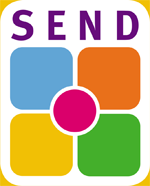Specialist Provision in Telford and Wrekin
Specialist Resource Bases
Specialist resource bases are purpose-built classrooms located within mainstream schools, designed to support children with complex needs. Children attending these bases will be officially enrolled at the school where the base is located. The amount of time a child spends in the base versus their ‘mainstream’ class will depend on their individual needs and how they respond to inclusion opportunities.
Newport CE Junior School
Location: Avenue Road, Newport, Shropshire, TF10 7EA
Website: Newport CE Junior School
Specialist Provision Base: The Bungalow
Newport Infant School
Location: Granville Avenue, Newport, Shropshire, TF10 7DX
Website: Newport Infant School and Nursery
Specialist Resource Base: The Den
John Fletcher Primary School
Location: Upper Road, Madeley, Telford, Shropshire, TF7 5DL
Website: John Fletcher of Madeley Primary School
Specialist Resource Base: Specialist Resource Base Classrooms
